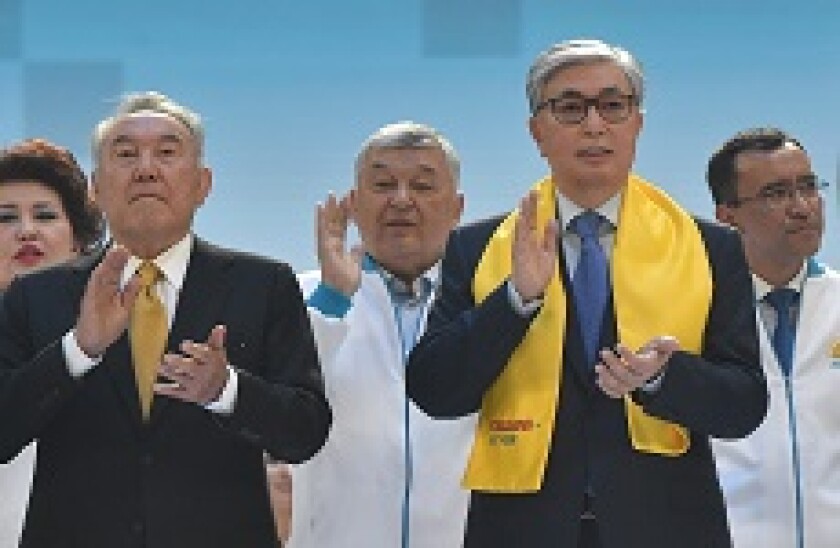Interim president Kassym-Jomart Tokayev, the hand-picked successor to Nursultan Nazerbayev, the country’s ruler since the fall of the Soviet Union in 1991, won the election to be Kazakhstan’s second president with over 70% of the vote.
Nevertheless, his victory was met with wide spread protests across the country. Opponents criticised the legitimacy of the vote and around 500 arrests were made.
Nazerbayev remains the most important political figure in the country retaining the title “leader of the nation”.
He also still chairs Kazakhstan’s powerful security council and is in charge of its ruling Nur Ortan party.
Nevertheless, the discontent in a country not used to large protests will remind investors looking at Kazakh privatisations that the country is on the verge of a monumental political change - just the sort of thing they hate.
There is speculation that Nazarbayev’s eventual succession plan is that his daughter Dariga Nazarbayeva will succeed him as head of the country.
She replaced Tokayev as the new chair of the Kazakh senate, traditionally the second most powerful role in Kazakhstan, in March.
One emerging market equities investor said that they saw the domestic disturbances in Kazakhstan as a sign that the transition plan could be disrupted and that there may be forces in the country that do not want the succession plan to progress.
Kazakh privatisation plans are already underway after the IPO of Kazatomprom in November. It is targeting further sell-downs and most importantly is seeking to list its national oil and gas firm KazMunayGas in 2020, likely in London.
Many equity investors are comfortable enough with Kazakhstan to want to grasp the opportunity to invest in its national champions.
Investors largely welcomed Nazerbayev’s plan to give up power hoping it means that Kazakhstan avoids the kind of power struggle seen in other former Soviet states when long-reigning leaders died or were forced out.
As long as Nazerbayev remains in place, equity investors will likely remain confident enough to invest in Kazakhstan. Should, however, he suddenly be removed or pass away, the appetite for Kazakh assets could change if there follows political instability.
That leaves the Kazakh government with a dilemma over KazMunayGas: either wait until the succession is assured and use the stability to achieve the best price, or try and rush it out of the door now to avoid the risk caused by a deterioration in political stability.
The path it chooses might indicate something about how Kazakhstan views its own future and influence further the investor appetite for Kazakh asset sales.

